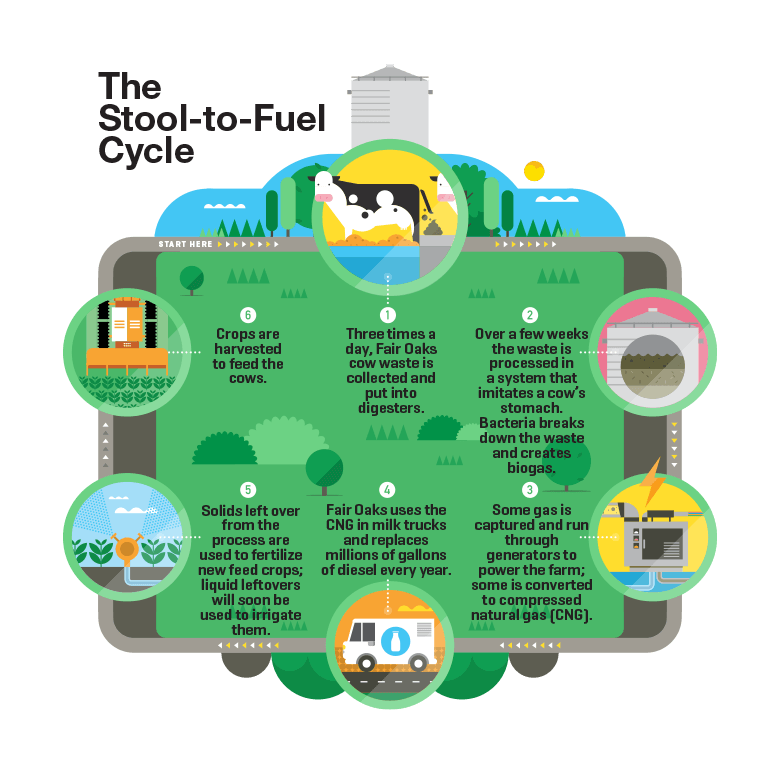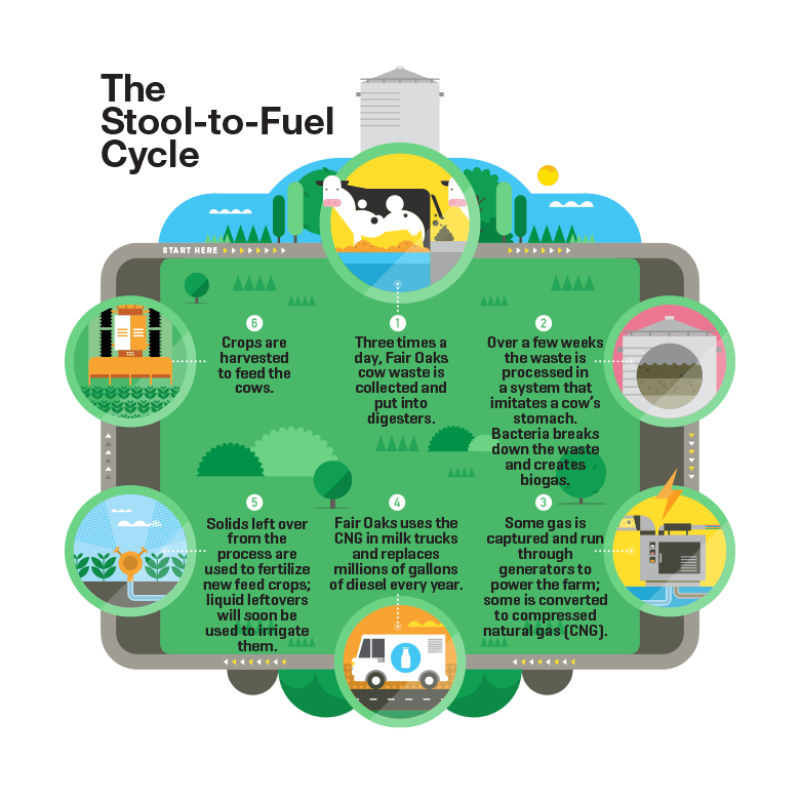The GLP aggregated and excerpted this blog/article to reflect the diversity of news, opinion and analysis.
Many people expect the worst when they think of Big Agriculture, and sometimes with good reason. Industrial-scale farming practices have made food cheaper and more abundant than ever before, but they have also contributed to pollution, resource shortages, and unhealthy eating habits. Some consumers now have an inherent bias against “big” when it comes to what they eat, using it as shorthand for all that’s wrong with our food system. . . .
Fair Oaks is challenging the assumption that big can’t be good. It’s because the 12 family-run dairies that make up Fair Oaks have 36,000 cows (only 1% of U.S. dairy farms have 2,500 or more) that it’s economically viable for McCloskey, his wife, Sue, and their partners to convert manure into fuel that runs their farms and powers a fleet of trucks. “The key piece under all of this is they can do things you can’t do at a smaller operation,” says Ronald Turco, a professor of agronomy at Purdue University.
. . . .
Mike McCloskey [Fair Oaks co-founder] is working to change the mind-set of the industry, demonstrating that farms can tackle environmental problems and still make a profit—and the bigger the farm, the bigger the impact. “Mike had a vision that he was willing to articulate and sell to an industry that was skeptical about sustainability,” says Tom Gallagher, CEO of the industry promotional group Dairy Management Inc. “My dream and Sue’s dream—and people look at me like I’m crazy—is to have a zero-carbon-footprint dairy,” Mike says. “And I believe I can get there.”

Read full, original post: Big Agriculture Gets Its Sh*t Together































